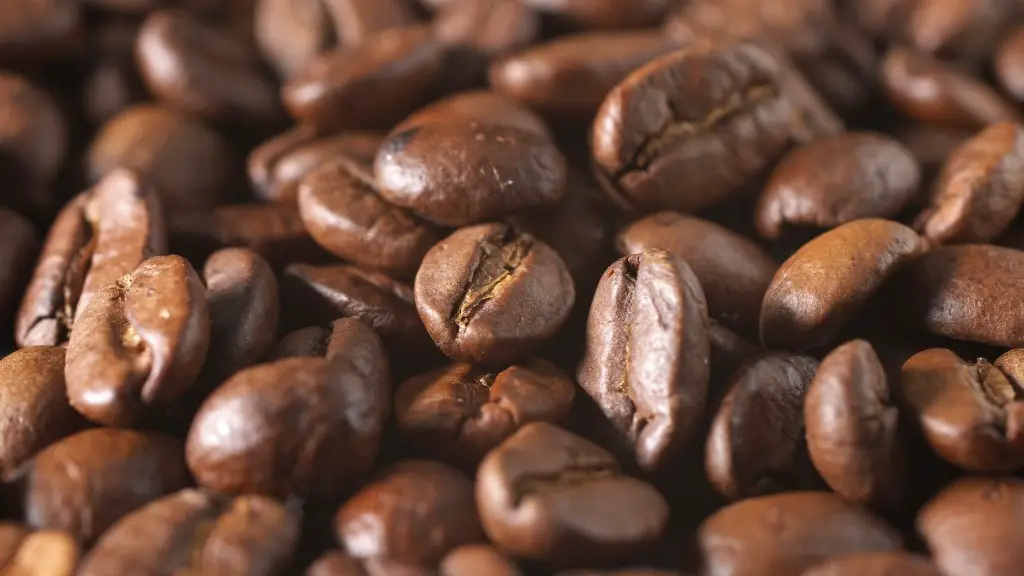Coffee is a popular beverage many people enjoy having in their daily routines. However, for people suffering from acid reflux, drinking coffee can have serious repercussions. Acid reflux is a condition whereby the food and stomach acid moves up into the esophagus and causes heartburn, chest pain and regurgitation. That being said, for the many people with acid reflux, drinking coffee is a sensitive topic since it has a tendency to increase the risk of flare-ups. In this piece, we will look at the effects of coffee on acid reflux and give some strategies to minimize its effects.
Firstly, it’s important to note that coffee can aggravate acid reflux due to its complexity. Coffee is acidic in nature and contains a range of compounds such as caffeine, theobromine and tannin, all of which can influence the way your stomach processes food. Additionally, coffee is a stimulant, which can lead to decreased esophageal peristalsis and a greater risk of acid reflux. Some studies have even found that coffee can have a ‘refluxogenic’ effect, whereby it increases esophageal splashing and increases pressure in the lower esophageal sphincter – the valve that keeps acid in the stomach.
From an expert’s perspective, there are some strategies that can help to reduce the risks of acid reflux associated with coffee. It is recommended to limit your daily coffee intake, as each individual has different sensetivities to different levels. According to an article from the American College of Gastroenterology, the optimal amount of coffee for acid reflux sufferers is less than 2 cups per day. It is also advised to choose either mild or decaf coffees, as they are less acidic and less likely to cause symptoms. Additionally, people with acid reflux may find that using lighter roasts or cold brewed coffee can reduce the acidity and potential irritation effects of the drink. Adding dairy or plant-based milks can also help provide an extra layer of protection against stomach acid.
In terms of the best coffee drinks to consume if you suffer from acid reflux, the best option is typically iced coffee. This is because the cold temperature is less likely to increase stomach acid production, compared to hot coffee. Another good option is cold brew coffee, which is typically less acidic as it is brewed with cold water. Additionally, herbal tea can be consumed as a substitute for coffee, as it is free of acidity and caffeine.
For people with acid reflux, the effects of coffee can be disabling and it is essential to be mindful when choosing which type and amount of coffee to consume. It is especially important to take the advice of your doctor and keep your daily coffee intake to a minimum. With some mindful decisions and strategic modifications, it’s possible to find ways to enjoy coffee without the risk of acid reflux.
Switch To Decaf
For those who are unable to keep their coffee intake to just two cups per day, switching to decaffeinated coffee may help to alleviate the risk of acid reflux. While decaf coffee still contains some naturally-occurring caffeine, the amount is significantly lower and is unlikely to increase the risk of acid reflux. As such, opting for a decaf option may be the best choice for reducing flare-ups and avoiding uncomfortable symptoms.
In terms of the taste, most decaffeinated coffees are no different from their caffeinated counterparts. Therefore, it’s possible to still enjoy the same flavors of your favorite drinks without the added acidity of a caffeinated beverage. In addition, drinking decaf coffee can have its own benefits as studies have shown that it can improve overall energy levels and memory performance.
One tip to maximize your enjoyment of decaffeinated coffee is to choose a medium-dark roasted option. This will provide the strongest flavor and can make for the closest comparison to the taste of caffeinated coffee. While some may argue that medium-dark roasted decaf coffee still contains some acidity, the fact is that it is still significantly less acidic than a traditionally caffeinated espresso or cappuccino.
Add Milk To Coffee
Another strategy to reduce the risk of acid reflux associated with coffee is to add milk or cream to your drinks. This is because dairy products typically have an alkaline pH, which helps to neutralize the acid in the coffee. Additionally, some studies have shown that dairy can actually decrease the levels of esophageal acid exposure associated with coffee consumption.
Adding milk to your coffee can also help to protect against acid reflux in another way. Dairy fat has been known to slow down the release of stomach acid and consequently helps to reduce the risk of acid reflux flare-ups. That being said, those with a lactose intolerance should be mindful in their milk consumption and may want to try other non-dairy alternatives such as almond milk or soy milk.
In terms of what milk to be using, cow’s milk is the traditional option but there are also other milk types such as almond milk, oat milk, and rice milk. Each of these milk types offer different benefits, such as added levels of protein, fibre and essential vitamins and minerals. Furthermore, some milk alternatives add a unique flavor to your coffee, which can make for a pleasant drinking experience.
Conclusion
As a conclusion, for those who suffer from acid reflux, it can be difficult to enjoy coffee. That being said, with some mindful choices and strategic modifications, it is possible to enjoy coffee without the risk of acid reflux. Firstly, it’s important to limit your daily coffee intake with one to two cups being the optimal amount. Secondly, it is best to choose mild or decaf coffees, which are generally less acidic and irritating. Thirdly, another good option would be cold brew or iced coffees as they are less likely to increase stomach acid production. Additionally, adding milk or plant-based milks can increase the pH of coffee and provide an extra layer of protection against stomach acid.
Alternative Beverages
For those who prefer to avoid coffee altogether, there are some other beverages they may turn to. Herbal teas are a great alternative which are far less likely to trigger symptoms of acid reflux. Some herbal options such as fennel, chamomile and ginger tea have been known to help reduce feelings of nausea and reduce levels of gastro-intestinal discomfort. Additionally, some low-acidicity fruit juices such as pineapple and papaya juice can be enjoyed as a coffee-substitute and will provide additional health benefits, such as increased levels of vitamin C and other nutrients.
In another alternate option, herbal matcha tea is another great alternative to coffee. Matcha combines a variety of vibrant green tea leaves, which contain high levels of antioxidants, known as catechins. Studies have shown that these catechins can help to reduce acid reflux symptoms. Additionally, matcha typically has lower levels of caffeine compared with coffee, making it a healthier and more suitable option for those with acid reflux who still want to drink a stimulating beverage.
Take Home Message
To summarise, for those with acid reflux, coffee can pose a big challenge, as it has a tendency to aggravate symptoms. However, with some mindful lifestyle choices and strategic modifications, acid reflux patients can still enjoy coffee – or alternative beverages – without compromising their health. This can be achieved by limiting your coffee intake, choosing mild or decaf coffee, adding milk or plant-based milks, and incorporating some herbal tea or fruit juices into your daily routine. As an added benefit, all of these strategies will not only reduce the risk of acid reflux, they will also help to increase your overall health and wellbeing.



